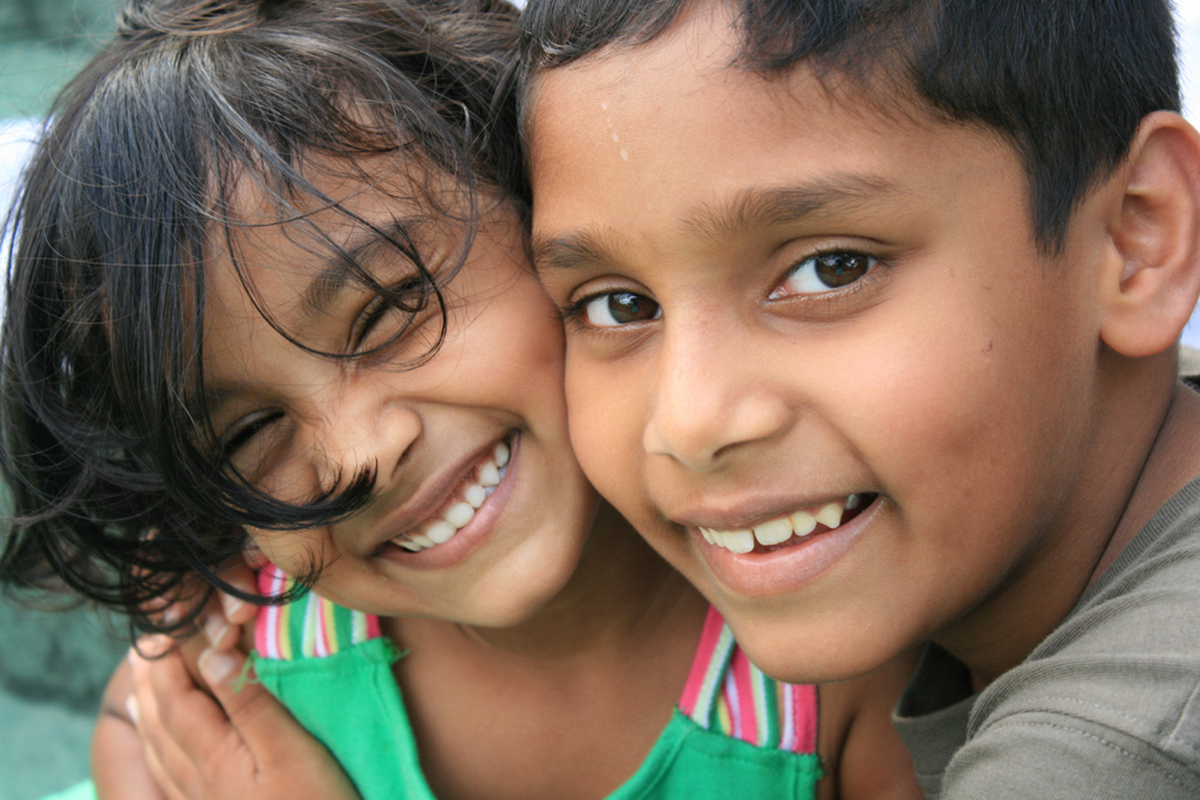Are you beyond fed-up with the conflicts your kids get into, and wish they'd just get along already? Occasional conflict between siblings is completely inevitable — no two humans will always see eye-to-eye, and your kids are no exception. There's no need to resign yourself to the idea that constant quarreling is just what children do, though! Teaching your kids conflict-resolution techniques will make your life easier, them happier, and will continue to serve them well throughout their childhoods and adult lives. How do you do it?

Sibling Rivalry Vs Sibling Conflict
"Sibling rivalry" is a much-used term, but what does it actually mean? We're talking about an existential kind of jealousy and competition among siblings here — something that can certainly lead to open conflict, but can also manifest as a below-the-surface tension, and as self-esteem struggles for the children involved.
Sibling rivalry, the theory goes, results from kids' subconscious needs to fight each other for their parents' love and attention. An obvious way to try to prevent it is, then, ensuring that your children don't feel this is necessary. By avoiding comparing their children, allowing them to shine as individuals, actively nurturing each kid's interests and strengths, and helping them see each other as equals rather than competitors, parents can help create family dynamics that thrive on cooperation rather than rivalry. Though this is not a fail-safe approach to a rivalry-free home, it sure helps.
Existential-level rivalry among siblings can often be prevented, but of course that doesn't mean that there won't be sibling conflicts. Conflicts are an inherent part of the human condition, and people who see each other as often as siblings in childhood do certainly can't expected to get through all their years together without arguments, hurt feelings, and in the case of young children, often physical fights too. Sibling conflict may be normal, but knowing effective conflict-resolution strategies can make life a lot more pleasant — for your kids, and for you too!
What Do You Need To Pay Special Attention To?
Feelings of competition with brothers and sisters are most likely to reach a height between the ages of 10 and 15, when children are also heading towards puberty or already there, and are beginning to contemplate their own sense of identity more than before. Children who are close in age and of the same gender are especially at risk of having a tumultuous relationship, but frequent sibling conflict can also be the result of either a clash of personality or the opposite scenario: being very similar to one another.
READ Pals, Rivals, And Teachers: How Brothers And Sisters Shape Us And Our Health
A stressful period of life for kids — being bullied at school, facing standardized testing, a new baby in the home, or friendship challenges — makes sibling conflict more likely. Kids who are generally suffering from "cabin fever", are bored, hungry, or have unmet needs for physical activity and human interaction are also perfect candidates for fight-picking. That's what we do: we take our stresses out on those who happen to be there, in close quarters!
How To Help Your Kids Handle Sibling Conflicts
Even in the most harmonious households, quarrels and fights will happen. "Should I intervene, or let my kids handle their issues on their own?", many a parent has asked themselves. This is an excellent question that doesn't have a simple answer. In order to prevent unpleasant and even abusive habits from forming, research suggests that it is important for parents to monitor sibling conflicts — to listen in and to be aware of what is going on. If your kids are handling their arguments in a constructive manner, you don't need to do anything but compliment them on their conflict-resolution skills afterwards. If, however, you notice that things are getting out of hand, you can step in, remind your kids of your house rules regarding interpersonal behavior, and be there to enforce them.
Independent conflict resolution can't be expected to take place among very young kids, but with ongoing conversations on the topic, your kids will be armed with the skills they need to handle arguments kindly but effectively. Here are some tips you can discuss with them.

Anger: A Normal (But Tricky) Emotion
We all feel angry when we are wronged or feel we don't have control over a situation, and kids are no different. Tell your kids that being angry is perfectly normal and acceptable, but also that showing our anger in the most blatant way possible is likely to cause an escalation of an existing conflict, as being confronted with others' angry emotions puts people on the defensive. (Or to put it more simply — ask your child how they feel when someone yells at them and how they want to react when that happens, then explain that others feel the same.)
Walking away, drinking a glass of water, punching a pillow or drawing for a while are all acceptable strategies that help people calm down. You can teach your kids to tell their siblings: "I'm feeling angry right now, I'm going to take a time-out." Once their initial anger has subsided, they can then talk about their issues.
Listen — Really Listen
Verbal one-upmanship doesn't help people sort their differences out either. Though kids may lack the impulse control they need to listen, really listen and honestly consider the other's point of view, it's a good skill to practice! Try telling your kids that if they have trouble with their siblings, they need to fully understand how the other is feeling before they can solve their problems. Teach them not to interrupt each other and to paraphrase what the other was saying to make sure they are comprehending.
READ How And Why To Eliminate Yelling From Your Repertoire Of Parenting Tricks
Apologies
Kids may feel embarrassed about saying they were wrong, so try to foster a family culture in which admitting to wrongdoing is praised rather than punished. If your kids feel safe saying they were wrong and apologizing, conflicts between siblings become a lot easier to resolve. Teach your kids that accepting an apology gracefully is just as important as being able to say sorry, too.
Relationships First
I often tell my kids that I understand they're annoyed by their sibling on occasion — because we can all be tremendously irritating sometimes! However, they've each only got one sibling, so it's important to get along and get over feelings of anger and frustration quickly. Bearing grudges isn't the way to a good relationship, and good relationships make everyone happier, so after talking things over and making amends where needed, it is time to move on.
- Photo courtesy of greg westfall. via Flickr: www.flickr.com/photos/imagesbywestfall/3606314694
- Photo courtesy of greg westfall. via Flickr: www.flickr.com/photos/imagesbywestfall/3606314694
- Photo courtesy of greg westfall. via Flickr: www.flickr.com/photos/imagesbywestfall/3606314694
- Photo courtesy of Natashi Jay via Flickr: www.flickr.com/photos/tizzlin/6520181697

